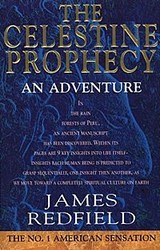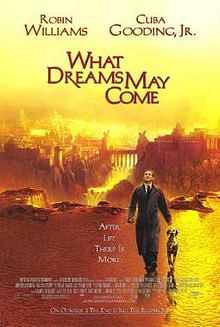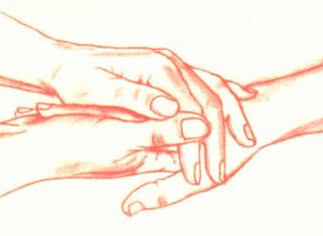The ONLY thing that ought to, can and should, fill our soul is God.
Confusion, the cause for many of us to be unable to think with clarity, often arises because we can be rather clueless about things. We can be way thrown off and muddled not because we cannot think but rather we tend to associate the thinking process with one thing or action that does not match to what we have learned. We have good reasons to find justifications for what we do, and over time we build up quite a complex set of theories about ourselves.
The irony about a learned mind lies with our simple human nature. Humans are mostly driven to be consistent in all areas of life. It is shown in our words, deeds, attitudes, opinions, beliefs, values, habits and promises. When we make a decision or take a stand, or performs an action, we strive to make all future behaviour to match our past behaviour. We can deny, manipulate, undervalue or overvalue our attributes, behaviours, motivations and talents.
Our human mind can go into a perplexed mode when it is confronted with many conflicting situations. It results in a situation where continuity can be lacking, mistakes are made and at our failures to act intelligently.
Humans, generally, have a laid back thought process. Most humans are intelligent but fail at logical thinking. Socially and personally, we find refuge in a haven safe shortcut instead of becoming proactive to make big change in life. This shortcut makes us feel safe, if not peaceful. Afterall, it has been a wildfire belief that life is too complicated to carefully evaluate every elements of every situations. Hence, one may not choose to think the need to go the extra miles to make the difference.
Doing things the same way time and time again, or maintaining the same ideas about things, gives an easier way out. We, unconsciously and subconsciously, take this easy way to help us to make what are usually reasonable and reliable actions and decisions. This way, it makes thinking easier because there is little (or no) thinking needed. It is a way, or shall I say it that it is the simplest way, to simplify the burdens on our thinking process. It is a way to avoid unpleasant emotions. Importantly, it helps us to stick to what we know and avoid the chance of disappointment, embarrassment, failure and loss.
To stay within the perimeter of what have become us and stick to the way we are, it forms a desirable trait. It is seen as rational, trustworthy, stable and decisive. To be or even sound differently, on the other hand, is usually frowned upon. It is seen as irrational, deceptive, unstable and indecisive.
The question now, does doing what we have always do put us into becoming a better being? Do we have to accept what-is as is? In Why Do We Count Our Blessings, I wrote "While I am made aware to understand that wealth is just allurements of life on us here in this world, where they are are to satisfy our material earthly needs, it is in the consciousness knowing these rewards that makes the difference. These earthly allurements are our foundation for building up hopes, but not to be taken as the ultimate blessings, as the real rewards are in the Life after."
"Our life here on this world is a time of test and trial. We are tested with good and comfortable times to see whether we can remain thankful. At other times, we are tested with bad and difficult times to see if we can remain steadfast and still knowing Him."
Our actions that result from our thought process, and to say it negatively here, are triggered from a box of limited commitments of shortcuts. It is just the way we live our lives where we would rather be in our comfort zone and not fully participate with what we think we know, believe and the faith in what we have. We are often good at deluding ourselves, about what we are really like rather than taking a deep insight to know ourselves better.
Have we ever sat down and thought, "How do we know about our own awareness and consciousness?" How much do we know about the subjective machinery of our body and the objective ability of our body to focus attention on our selves, thoughts, actions and feelings? Do we allow our awareness and consciousness to judge the levels of our self development? How about logic and intuition?
If we want our conscious ideas to be aligned with our unconscious selves, we might need to change our behavior. We need to have paradigm shift but first, we need to know about how our commitment and conviction in life have been. Are we much a believer or are we able to align between the consciousness and place faith in what motivates us?
Much of our thought process dismiss the true potential of who we truly are. We have become a victim, and a prisoner, to our own thought process. Our life centers on not to trouble troubles. We conveniently avoid to ask the need to be aware. More than often, we fail to ask ourselves 'how do we know?', 'how come we believe?'. We have taken many things for granted just because we want to maintain the same ideas about things. That is not a bad thing really but it does not culminate the being that we should become.
Have we ever wondered what is it to know something? What is it to believe something? What is it to have faith in something? To know something, to believe something and to have faith in something are all different things. They reflect degrees of involvement with knowledge that can vary from the most superficial awareness to the most profound perception of our deepest being.
A wise man would say that life is simple but we make it difficult. It is always the mind and its thoughts that stand in the way. Hence, we choose to accept things only on what we think we know. If we own a car, don't we want to know (at least superficially) how to take care of it? If we are in love (or wanting to find love), don't we want to know (and understand) how love attracts love? If we want to be happy, don't we want to know the sensation of being alive and existing? If we own a spiritual side where we believe in the existence of God, don't we want to know how God can provide us?
We think something with only the surface of ourselves and we can know something with the totality of who we are. How we know and at what depth we know determine how we live. We believe things with our minds. Beliefs are ideas. They are concepts. They give us a picture of reality that others can agree with or disagree with. Beliefs, however, are not absolute truths. They are opinions about reality but not reality itself.
The more we become aware of our consciousness - that we know, we believe and we have faith in something, the more we become conscious and aware of its power and able to utilize its power. It is the only way that we can stop at self delusion. People whose conscious and unconscious motivations are aligned, i.e. what they say matches up with what they do, are happier and healthier than those less self knowledgeable peers.
When we say we believe, it is also important that we know and have faith in the subject. It is about coming into self observation with life as it is. It does mean a change of live but with self understanding and self development.











 I offer Reiki Distant Healing
I offer Reiki Distant Healing